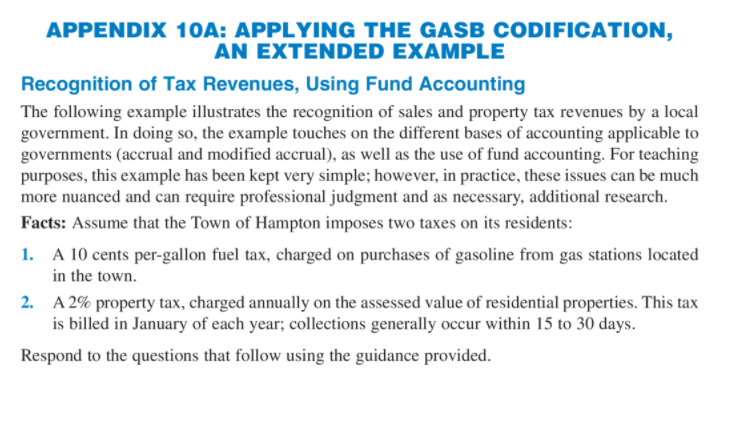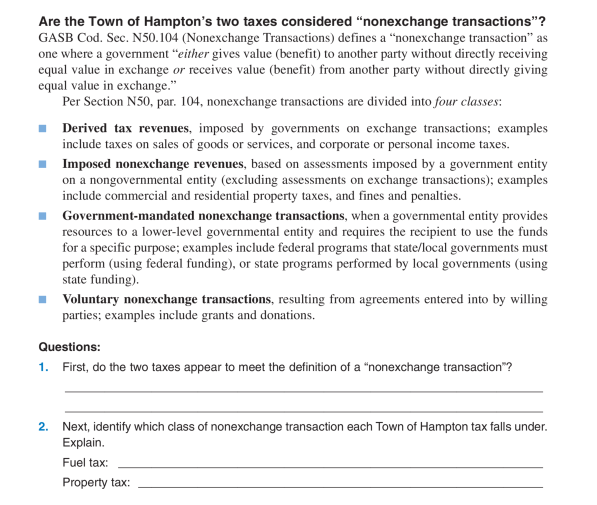Answered step by step
Verified Expert Solution
Question
1 Approved Answer
APPENDIX 10A: APPLYING THE GASB CODIFICATION, AN EXTENDED EXAMPLE Recognition of Tax Revenues, Using Fund Accounting The following example illustrates the recognition of sales and


Step by Step Solution
There are 3 Steps involved in it
Step: 1

Get Instant Access to Expert-Tailored Solutions
See step-by-step solutions with expert insights and AI powered tools for academic success
Step: 2

Step: 3

Ace Your Homework with AI
Get the answers you need in no time with our AI-driven, step-by-step assistance
Get Started


